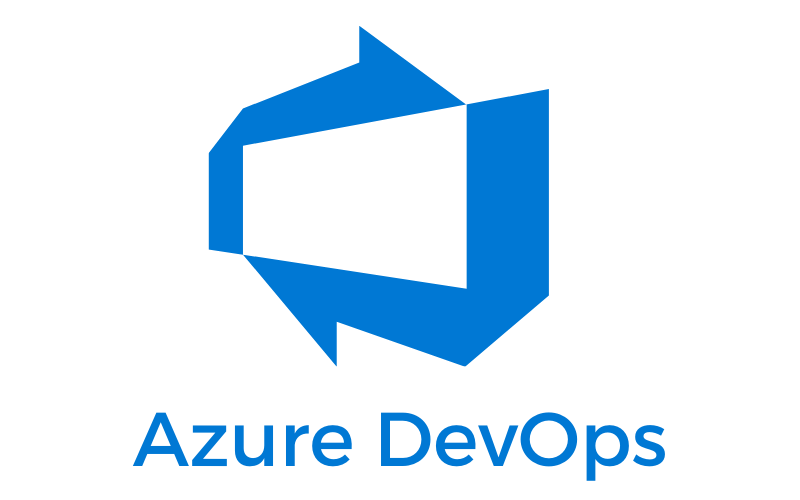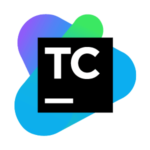Azure DevOps
Azure DevOps is compiled out of Azure DevOps Services and Azure DevOps Server. Both were formally Visual Studio Team Services / VSTS.
What is Azure DevOps?
Azure DevOps is the evolution of Visual Studio Team Services (VSTS) and Team Foundation Server (TFS). In 2018, Microsoft rebranded VSTS and integrated it with TFS. This allowed teams to handle all their development needs from a single, unified platform.
Built on Microsoft’s own experience, the platform is among the leading cloud-hosting SaaS solutions and integrates with many leading tools and consists of various services covering the development life cycle, such as Azure Boards, Azure Pipelines, Azure Repos, Azure Test Plans, and Azure Artifacts.
The solution can be best described as a set of development tools and services provided by Microsoft that allows teams to plan, build, test, and deliver software efficiently and effectively. It serves as a comprehensive platform that includes everything from agile project management to continuous integration and delivery. Additionally, a built-in Wiki and reporting capabilities make it a one-stop shop for teams seeking to streamline their development process.
How does it work?
Essentially, Azure DevOps is an end-to-end project management platform, acting as a CI/CD platform providing various tools in the DevOps arena. It assists developers and DevOps teams in the development life cycle of applications and offers “an integrated, collaborative environment that supports Git, continuous integration, and Agile tools for planning and tracking work.”
Because the solution represents a stack of services, features can be used together or separately. The core services include:
- Azure Boards: for agile project management
- Azure Repos: for source control
- Azure Artifacts: for package management
- Azure Test Plans: for testing and continuous delivery
- Azure DevOps Server: for on-premises hosting
What are its advantages?
Azure DevOps provides teams with a comprehensive set of tools and services that allows them to streamline their development process. It also offers built-in reporting and analytics, as well as the ability to integrate with other tools and services. Using this solution, teams can improve their collaboration and increase efficiency to deliver higher-quality software output.
Azure DevOps key advantages
- A free version designed to educate developers and heighten productivity
- Compatibility with various programming languages, platforms, and cloud providers
- A wide range of integrations and collaboration capabilities
- Git repositories for code management
- Customizable (such as fields)
- Embedded CI/CD
- Compatibility with various Microsoft tools
- Regularly updated SaaS offerings complete with new features
What is an Azure DevOps Server?
Azure DevOps Server, originally known as Team Foundation Server (TFS), is the on-premises version of its DevOps Services. It allows teams to use the same tools and services but hosted on their own servers. This empowers teams to exert more control over their data and infrastructure but requires more maintenance and setup.
Like the cloud-hosted version, the on-premises version also provides tools for version control, project and build management, reporting, test execution, and collaborative application development.
What Is the difference between DevOps Services and DevOps Server?
The main difference between Azure’s DevOps Services and Server is the hosting. The former is a cloud-based service, while the latter is an on-premises solution. However, according to Microsoft, the cloud-based service has some advantages over its on-premise counterpart. These include:
- Simplified server management.
- Immediate access to the latest and greatest features.
- Improved connectivity with remote sites.
- A transition from capital expenditures (servers and the like) to operational expenditures (subscriptions).
Microsoft also highlights several areas where there are differences between the two, including:
- Scope and scale data
- Authentication
- Users and groups
- Manage user access
- Security and data protection
Azure DevOps integrations
Azure DevOps can be integrated with various tools and services, such as GitHub and Slack, to name a few. Additionally, Incredibuild also offers seamless integration with the service, supporting teams’ efforts to accelerate time-consuming tasks such as compilations, testing, and code signing.
Try it now
Get Free LicenseAzure DevOps integrations
One of Azure’s DevOps major benefits is its integration with a vast number of tools and 3rd party services. Among its integrations, you may find Incredibuild to allow you to highly accelerate your Azure DevOps build pipelines.
Another popular integration is the Azure DevOps Jira integrations (by various providers) that allow teams working with both Azure DevOps and Jira project management platforms (for example, the backend team and the frontend team or the development team and the marketing team) to effectively work with both.
Azure DevOps Alternatives
There are many alternatives to it, such as Jira, Jenkins, TeamCity, Bamboo, CircleCI, and many others. Jira, for instance, is a popular alternative with similar features and capabilities that serves as an application life cycle management (ALM) tool after initially being developed as a bug-tracking tool.
Over time, Jira has evolved into a more comprehensive tool that embodies several tools for software development and management. Still, Azure provides a more comprehensive experience that includes built-in reporting and analytics, as well as the ability to integrate with
Azure DevOps and Incredibuild
Incredibuild Azure DevOps integration is seamless and offer the ability to highly accelerate time-consuming tasks that are part of your Azure DevOps builds, such as compilations, testing, code signing and more (to learn more about it, check out the following webinar). Minitab accelerate Azure DevOps tests from 11 hours to 11 minutes, using Incredibuild and Azure DevOps integration as well as running the compilations x3 faster.
Bottom line
If you’re looking for an end-to-end solution that provides a wide range of services, updates regularly, integrates with Visual Studio as well as other tools, this is one of the top solutions to consider.
Get Free License




